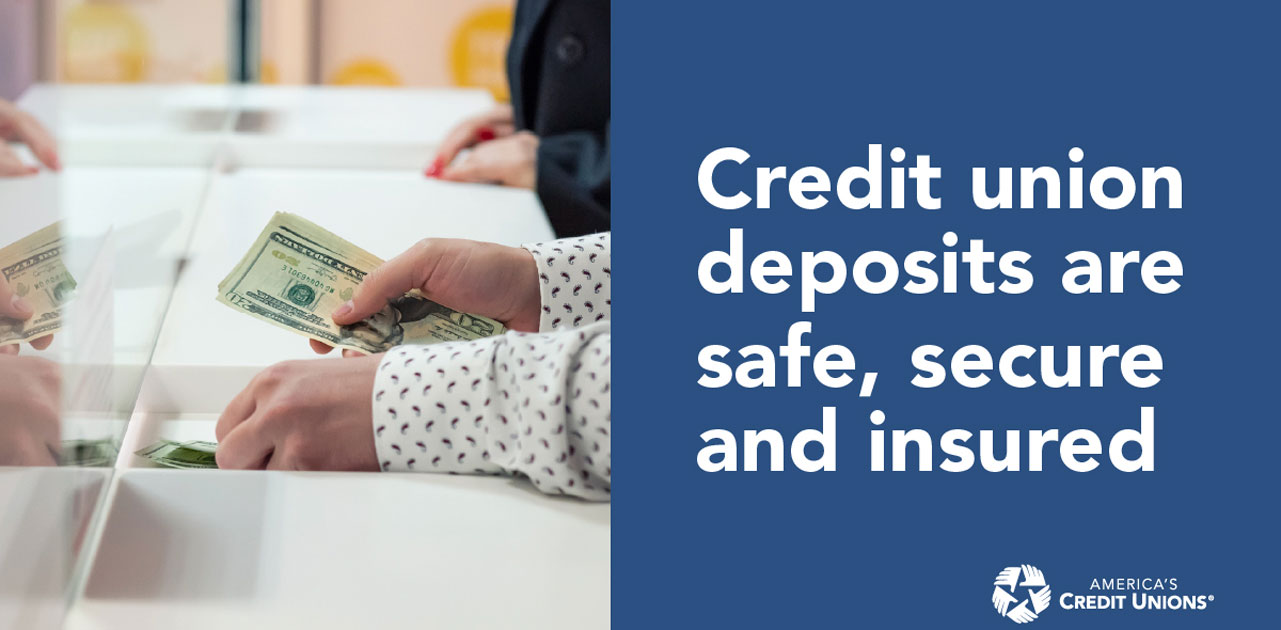If you’ve been following the Silicon Valley Bank collapse in the news, you may be wondering what that means for your money here at the credit union. Bottom line: Your deposits are safe, secure, and insured. MMCCU President David Murphy explains more about this topical issue:
What led to the collapse and why is it unlikely to be replicated?
I feel the circumstances in which Silicon Valley Bank, Signature Bank, and Silvergate Capital failed are different from what we saw in 2008 with the housing crisis, because less banks are as heavily concentrated in crypto-related investments than financial institutions were embedded in mortgage lending in the late 2000s.
This isn’t to say that more dominos won’t fall as a result of what we saw the past week, but I think it will be less widespread. Relying heavily on tech startups and crypto and other digital currency businesses can spell trouble for financial institutions. With SVB, for example, credit concerns led to the need to tap into their funds at a higher pace than previously expected.
A lack of liquidity at the bank resulted in the need to sell long-term assets at severe losses, due to the increasing interest rates, which exasperated the capital issues at SVB. As more concerns arose about the condition of the bank, more depositors requested to withdraw their funds, creating a cycle from which the bank could not escape.
What does this mean for local credit unions?
Credit unions, like banks, must be aware of these risks within their normal operations. Speaking on behalf of Marshfield Medical Center Credit Union, we do not invest in start-up companies or venture capital entities, where a lot of these issues arose for Silicon Valley, Signature, and Silvergate. We continue to monitor changes within the economy, both globally and locally, to track any potential hiccups within our loans and investments to anticipate any potential issues that could be on the horizon.
However, we continue to make sound decisions when we approve loans or purchase investments, as do many credit unions. Credit unions also have deposit protection of at least $250,000, so in the event something does happen to your credit union, your deposits will be made whole up to that dollar amount. For more information on how share insurance works, I encourage you to visit MyCreditUnion.gov and visit the Share Insurance section of the website.
Is there anything people need to do?
I know several local financial institutions have released videos and issued letters to their customer base letting them know the impact this latest development has on their operations. I would encourage you to speak with the employees at your local financial institution if you’re concerned. I feel pretty confident saying that most, if not all, have shied away from these riskier endeavors and will be minimally impacted by what we’re seeing nationally. It is unsafe to simply pull your money from federally insured banks and credit unions and storing the money in your house or keeping it locked up somewhere.
How is MMCCU protected?
We are federally regulated by the National Credit Union Administration (NCUA) and locally by the Office of Credit Unions (OCU), who check up on our operations to ensure we engage in safe and sound practices. We also have our financial statements audited by CliftonLarsonAllen to ensure our annual financial reports are fairly and accurately reported.
Finally, we implement sound practices to protect our member’s deposits, whether it’s through the programs we launch or the services we offer. We understand that engaging in unsafe practices can ultimately lead to distrust and lost money for the thousands of members who look to the credit union as their financial partner.


